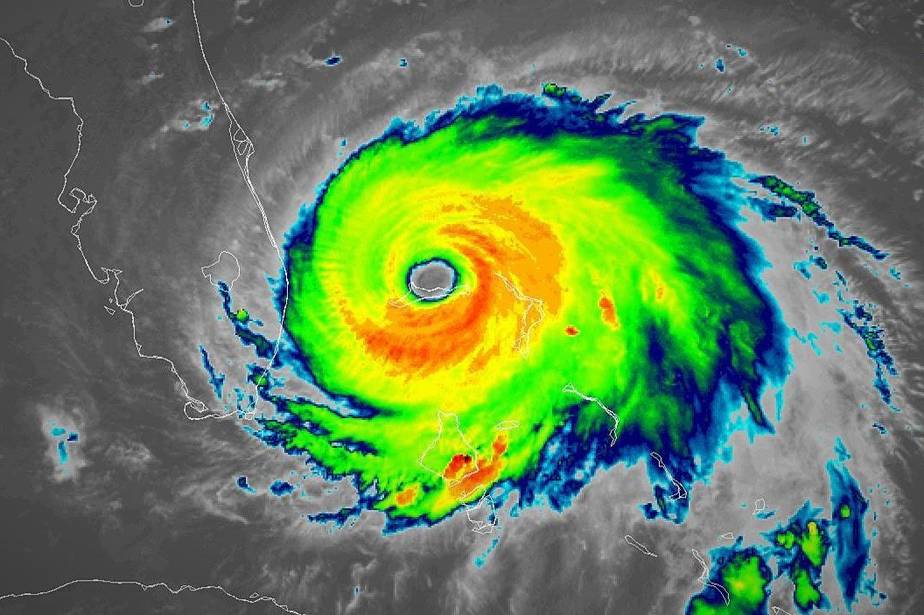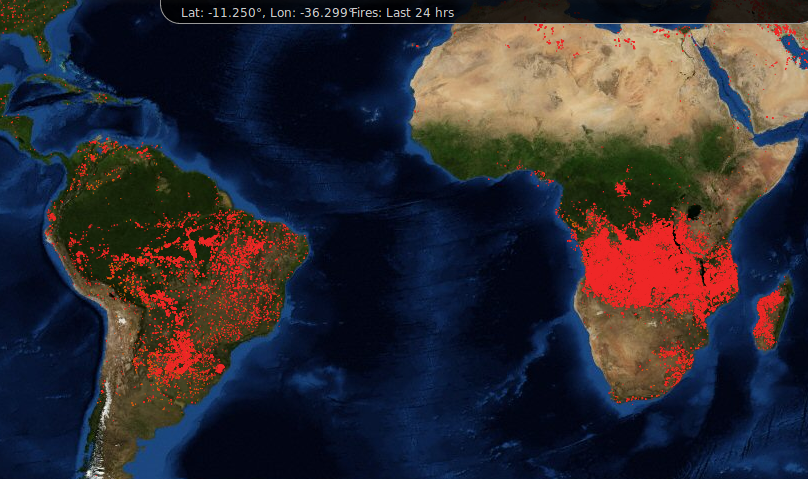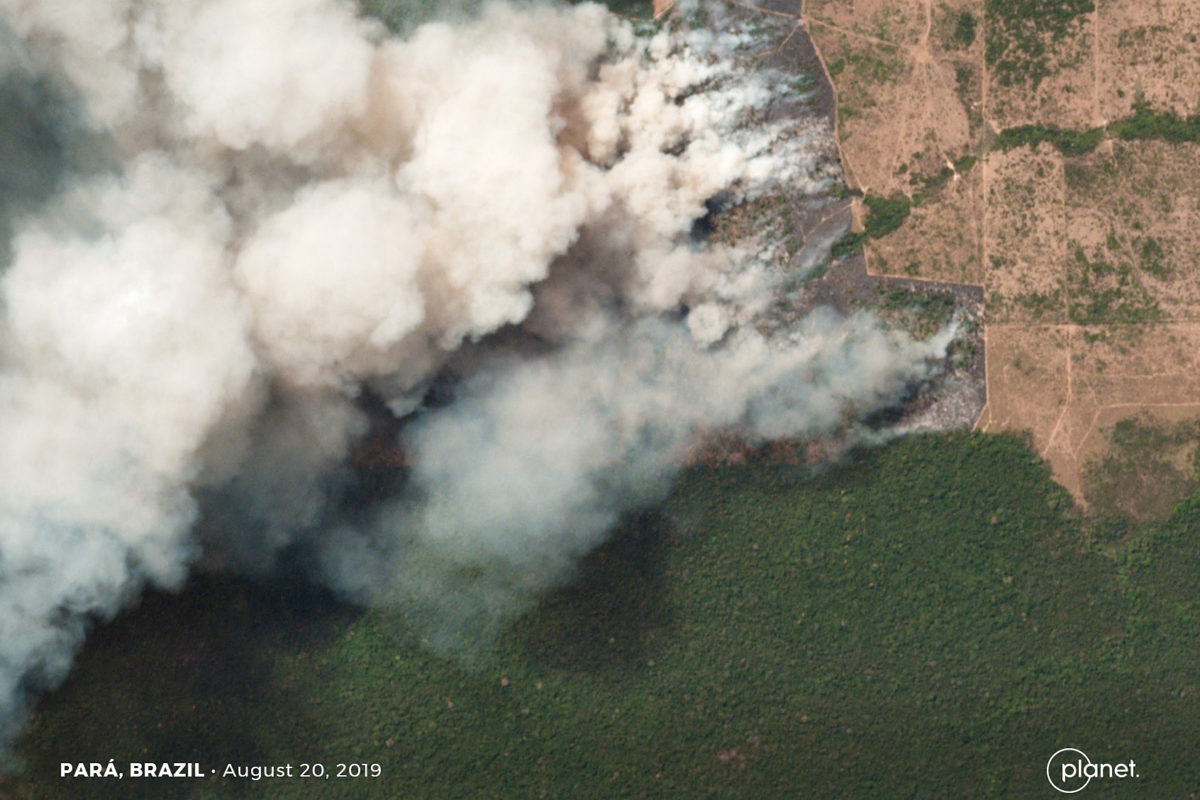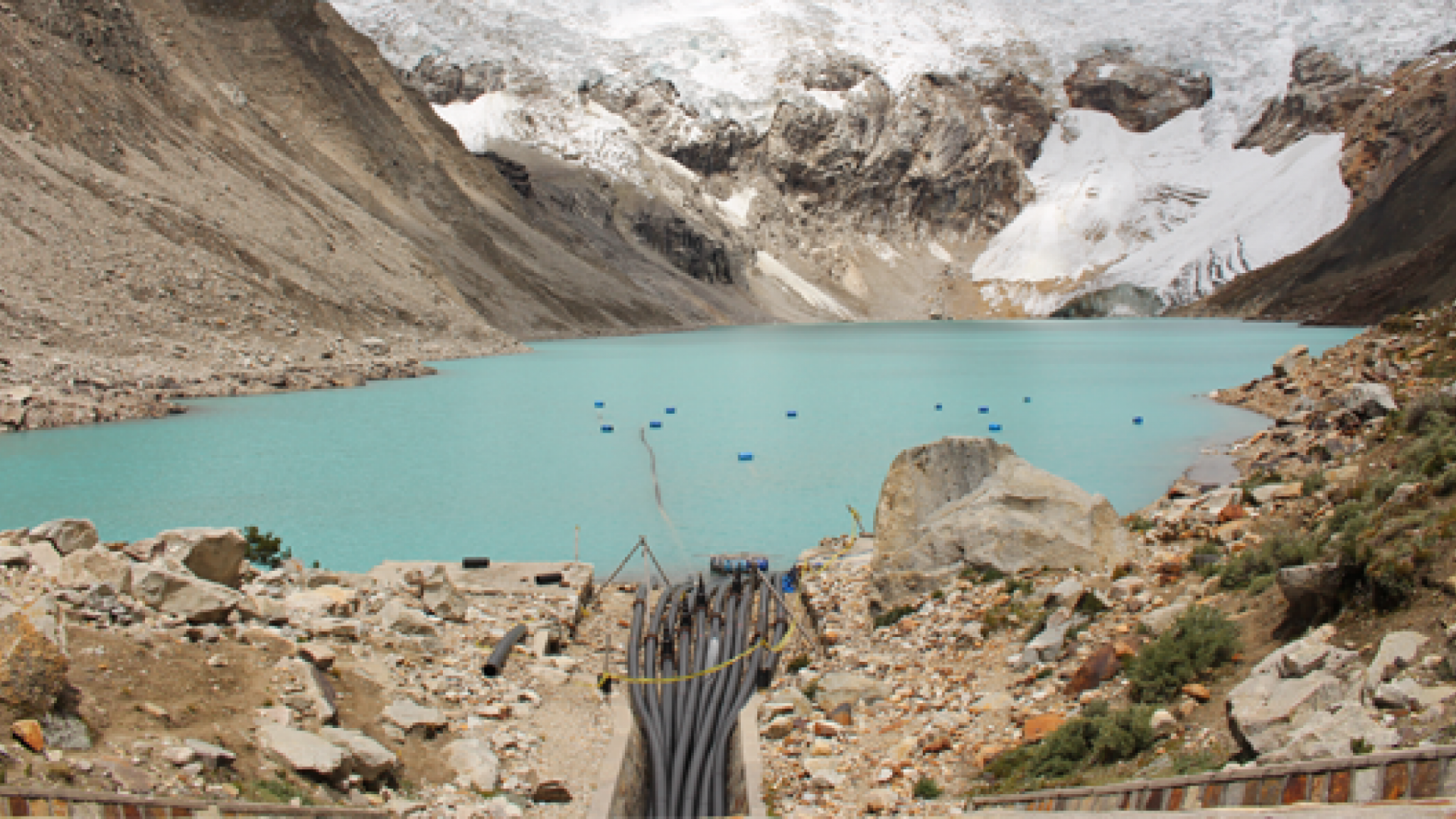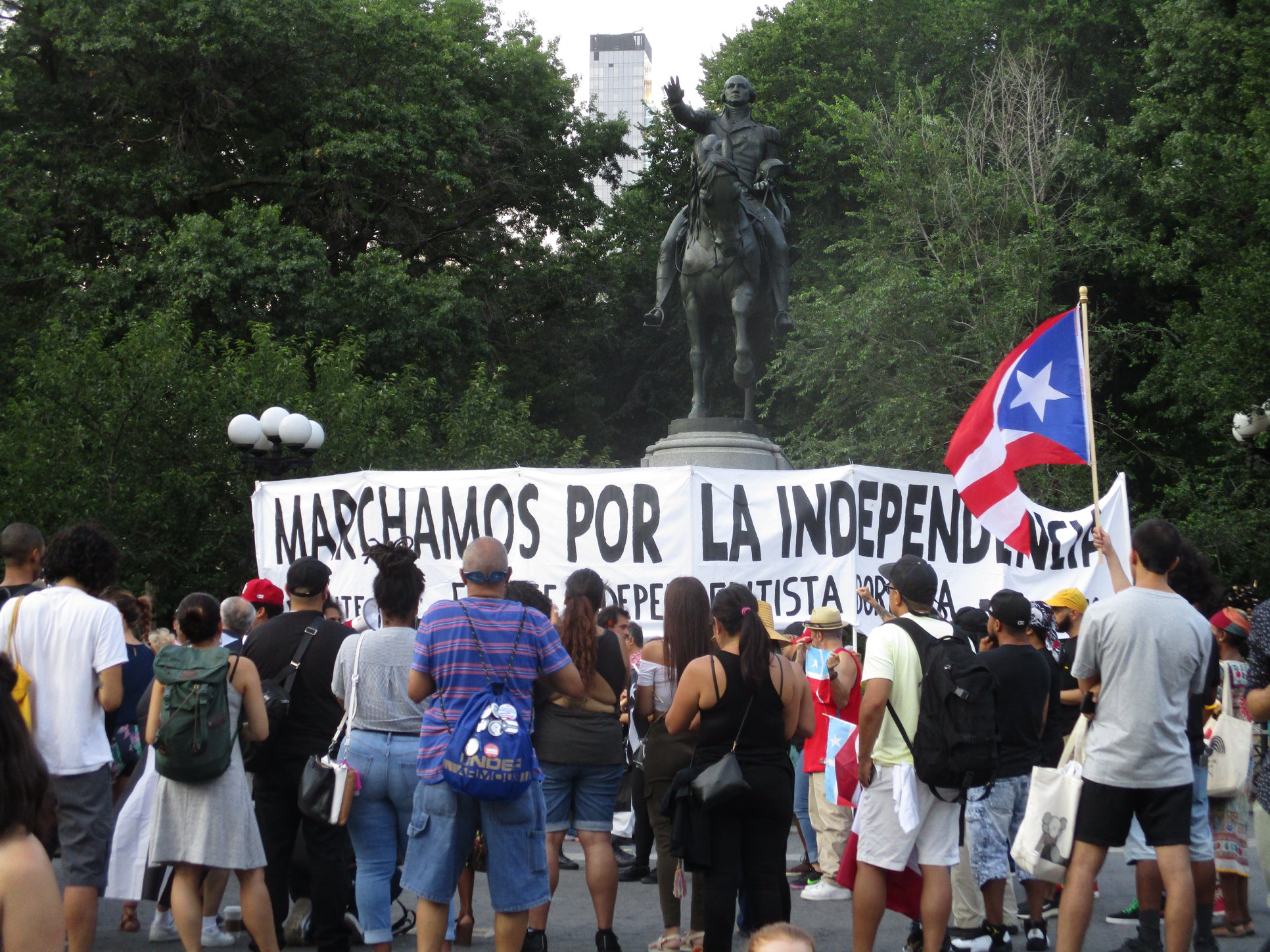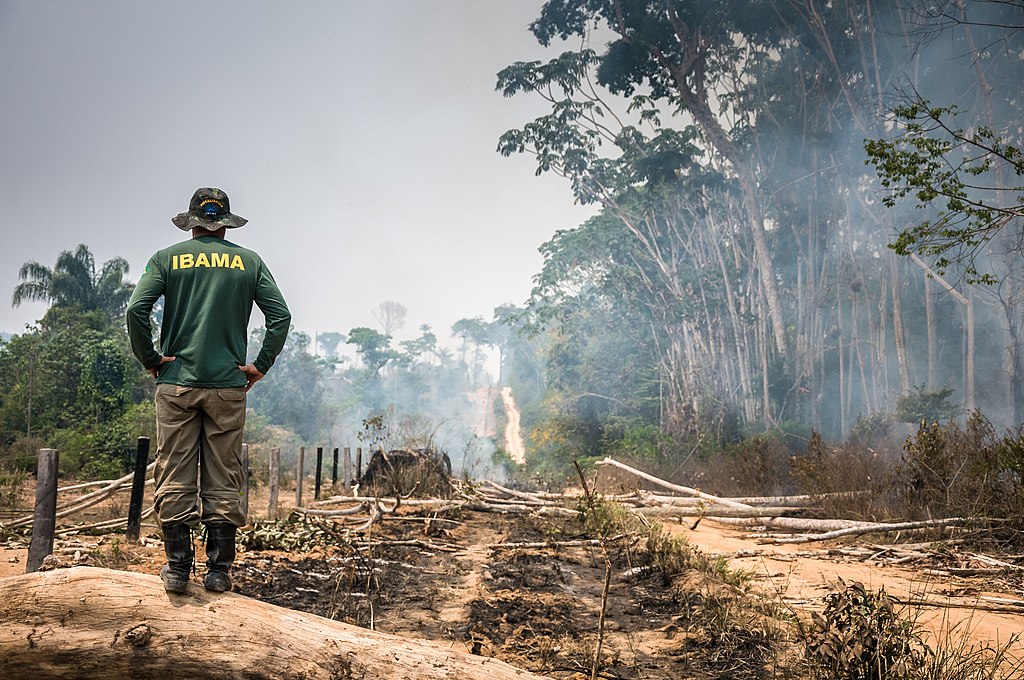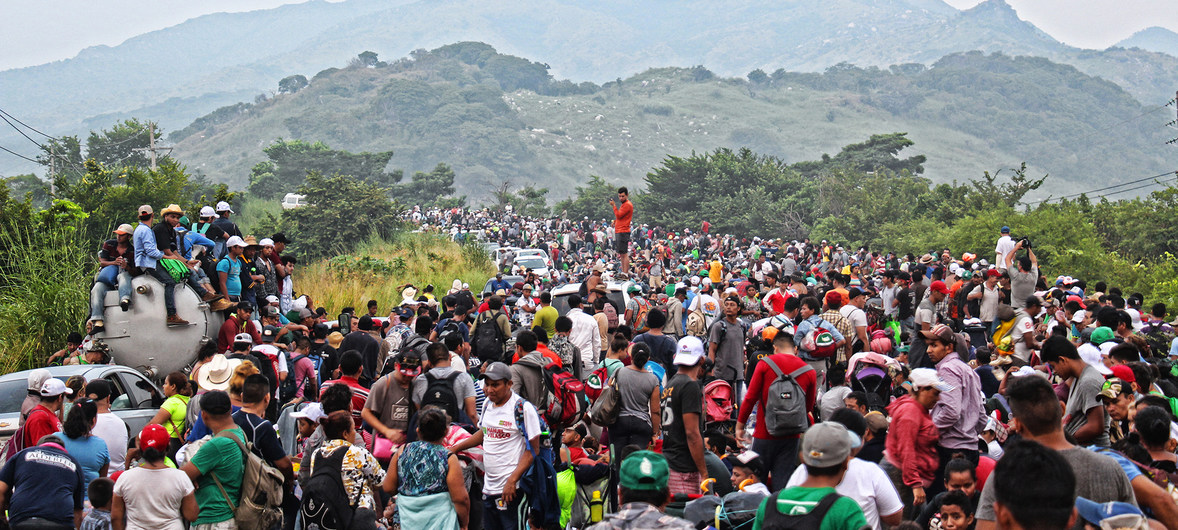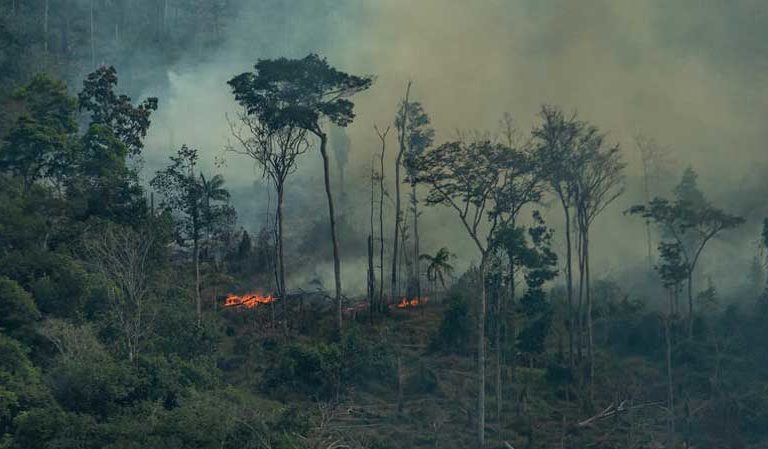
Bolsonaro to The Hague?
Brazil’s President Jair Bolsonaro failed to attend the summit of leaders of seven South American countries with Amazon Basin territory to address the devastating fires now consuming the rainforest. Duque claimed a medical emergency, and was represented by his foreign minister at the meeting in Colombia’s Amazonian city of Leticia. Just before the Leticia summit opened, a group of international attorneys specializing in human rights and environmental law announced that they will file a complaint against Bolsonaro for crimes against humanity and the environment at the International Criminal Court in The Hague. The attorneys, including the former French ambassador for human rights François Zimeray, will seek to have Bolsonaro indicted for his failure to respond to the fires in a timely manner. (Photo via Mongabay)



